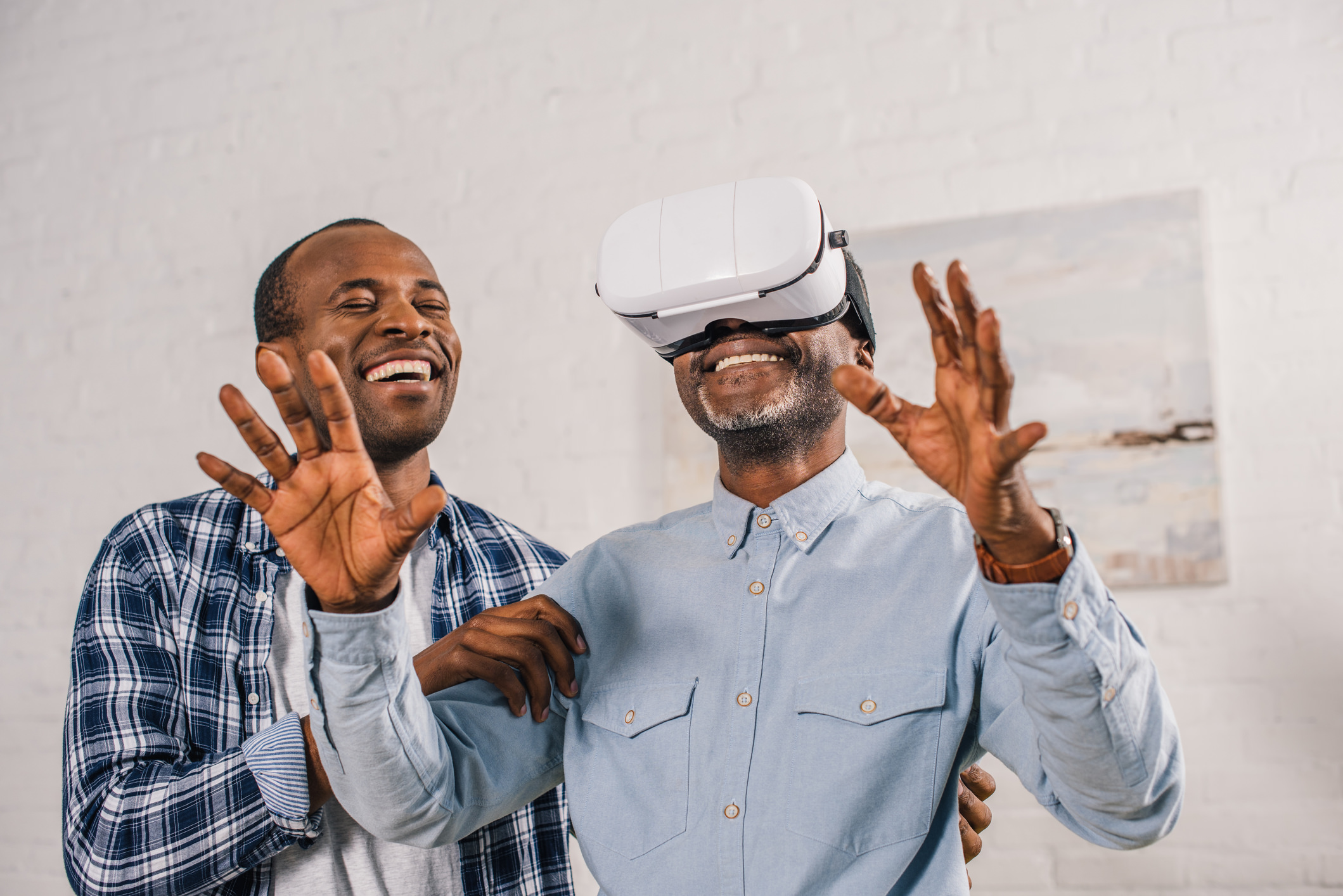Many of you know I am the chief science advisor at AppliedVR, a digital therapeutics company. My role at AppliedVR aligns with my dual core missions of expanding access to effective pain care and reducing treatment burden for people who have pain.
At AppliedVR, we target both missions by translating evidence-based behavioral medicine skills and principles into virtual reality (VR) treatment for chronic pain. We created an immersive, 3D experience that optimizes learning, experience, and chronic pain management through multi-sensory engagement. Best of all, treatment is self-administered and received in the comfort of one’s own home: no clinic visits are required. In our newest scientific publication in the Journal of Medical Internet Research (Feb 22, 2021) we report results for our 8-week self-administered at-home behavioral skills-based virtual reality program for chronic low back pain.
We conducted a double-blind, randomized, placebo-controlled national trial with 179 participants with chronic low back pain. Participants were randomized to one of two treatment groups: (1) EaseVRx — the eight-week VR program that equips users with the ability to recognize and adjust cognitive, emotional and physical responses to chronic pain or (2) the study control, a sham VR that displayed 2D nature scenes. Both treatments were delivered over 56 days.
At the end of the treatment period, we found significant reductions for average pain intensity and pain-related interference in activity, mood, and stress that were superior for the EaseVRx group vs. ShamVR.
Overall treatment results for EaseVRx at baseline compared to post-treatment were as follows:
- 42% reduction in pain intensity
- 49% reduction in pain interference with activity
- 52% reduction in pain interference with sleep
- 56% reduction in pain interference with mood
- 57% reduction in pain interference with stress
Finally, EaseVRx participants also reported extremely high system usability (96-100th percentile based on the System Usability Scale rating, representing an A+ usability grade).
These exciting findings suggest that home-based behavioral medicine VR for chronic pain is effective and easy to self-administer at home.
The study principal investigator was Laura Garcia, Ph.D., and coauthors include Josh Sackman, Ian Mackey, and Drs. Vafi Salmasi, Rob Louis, Brandon Brickhead, Todd Maddox, and Parthasarathy Krishnamurthy.
You can read the full press release on the AppliedVR website or on businesswire.com.
The full study protocol is available here: https://www.researchprotocols.org/2021/1/e25291
Our initial proof-of-concept scientific report for VR for chronic pain was published in 2020.
Stay tuned for more as we investigate the durability of VR treatment effects in follow-on studies.
Image credit: iStock.com/LightFieldStudios

